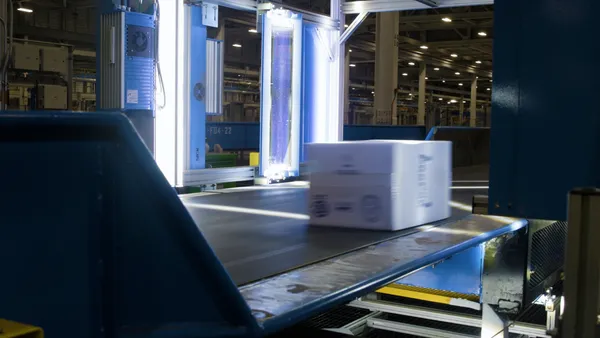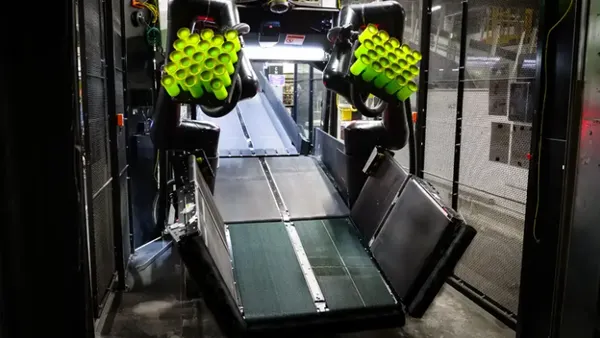Dive Brief:
- The shift in retail supply chains away from malls toward e-commerce is affecting not just brick and mortar stores, but the distributors that supply them, Industrial Distribution reported last week.
- Coca-Cola, for example, is seeing a dip in sales as fewer shopping trips mean fewer sodas bought at the vending machine or checkout lane, Bloomberg reports. Similarly, the company is not benefiting from the meal delivery trend as bottled sodas are rarely offered in such services.
- The new CEO is committed to reversing the trend through more lean and focused operations, investments in healthy brands, and most importantly modernizing the company while embracing technology.
Dive Insight:
It is hard to overstate the depth by which e-commerce has shaken supply chains, but businesses generations old are discovering a need to pursue e-commerce as old sales methods become obsolete or unsustainable.
Coca-Cola's example shows just how shifting consumer expectations will shift business strategy going forward. The company may have enviable brand recognition, but spontaneous purchase decisions can only go so far when customers wait for products to arrive to them. As a result, the company is engaging in various strategies to minimize costs and streamline revenues in the short-run, while positioning itself to serve long-run consumer interests.
In one recent case, Coca-Cola embraced a last-mile delivery app to help small retailers notify the company when a store needs to restock. Such real-time information will help the company avoid both over- and understocking buyers, which can help better align S&OP at plants.
But the company is coupling such efforts with a long-term vision to be more than just a soda company, becoming a beverage distributor. Coke and Pepsi alike have read the signs of waning soda sales, and partnered or bought other brands to offer coffee, juices and other bottled products. In addition, the two companies boast their sustainability initiatives.
Whether tangible or not, the e-commerce mantra stays the same: If the consumer is no longer reaching a product, the product must begin reaching the consumer. As spending habits shift, so too must companies' strategies — regardless of the industry.













